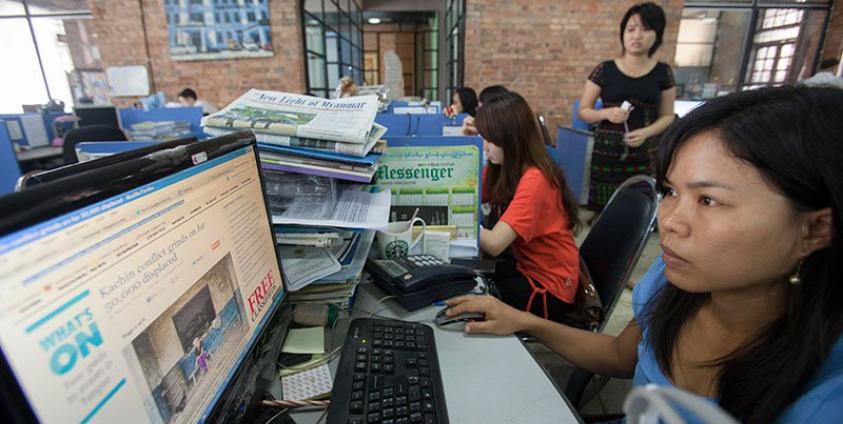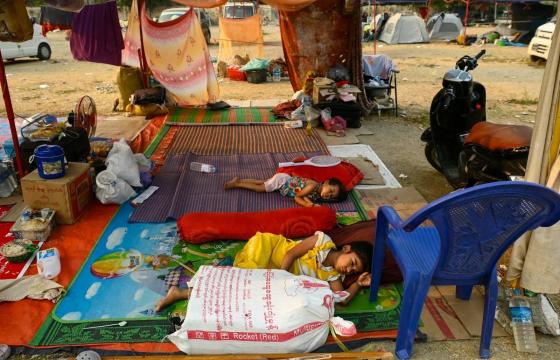Today, the Nordic diplomatic missions of Denmark, Finland, Norway and Sweden celebrate the Nordic Day. It is the third year we organize this event, which is an opportunity for us to display Nordic activities in Myanmar and showcase our shared Nordic values to a wider audience. At this year’s event, we are highlighting the Nordic countries’ strong and continued commitment to gender equality, both domestically and abroad.
In virtually every country in the world, women remain underrepresented in practically all positions of power, be it in politics, business or civil society. This holds true in the Nordic countries as well as in Myanmar. However, women can only fully enjoy their human rights if they have the opportunity to decide over their own lives and participate in decision-making that affects them. Key to obtaining that opportunity is women’s economic empowerment and labour market participation. The issue of women’s equal participation is first and foremost a matter of rights and a matter of democracy.
In addition, we know from experience that inclusive decision-making processes that take the opinions and knowledge of all those affected into account ensure more well-founded decisions. Such decisions are also seen as more legitimate. Research has shown that inclusive decision-making and equal participation of women and men lead to a more efficient allocation of resources, less corruption, higher growth and longer lasting peace agreements.
In the Nordic countries, working towards gender equality is seen as an essential approach to all areas of private and public policy, from management and budgeting to governance and legislation. Public policy reforms that have contributed to equal participation in our countries include developed maternal health care, expanded high-quality childcare provision, tax reform that promotes women’s participation in the labour market and gender-based quotas in politics and business. Although we still have a long way to go, we have seen women’s participation and leadership in politics, civil society and in the labour market rise significantly in our countries over the last decades.
Recently, we have witnessed some positive steps forward on the issue of gender equality in Myanmar. The number of female parliamentarians, as well as women represented on state and regional level, increased in the 2015 elections, and the National Strategic Plan for the Advancement of Women (NSPAW) has moved into its operating phase. Now is the time to turn this progress into lasting change. The Nordic countries are committed to collaborating with Myanmar in the efforts towards achieving women’s empowerment and gender equality. Among other things, we do so by incorporating a gender perspective and analysis in all relevant activities in Myanmar. For instance, we provide support to civil society organisations to make sure women’s voices are heard in the peace process. We work to promote female entrepreneurship and business leadership and support activities empowering rural women’s participation in governance. Furthermore, we frequently engage in policy dialogue with the government, discussing how best to further gender equality in Myanmar.
There is no quick fix for achieving gender equality. Inequality is maintained by political and economic power structures, as well as by regressive social and cultural norms. Changing these requires strong will and long-term commitment from all stakeholders in society. However, we know that progress is possible. Men play an important role in the process and have a great opportunity, as well as a responsibility, to become drivers for change.
Gender equality is an issue that concerns everyone. We invite everybody, including the readers of this article, to think and discuss with friends, family and colleagues. How can we work together to achieve it?
Mr Peter Lysholt Hansen, Ambassador of Denmark, Ms Riika Laatu, Ambassador of Finland, Ms Tone Tinnes, Ambassador of Norway and Mr Johan Hallenborg, Head of Office of the Embassy of Sweden, Section Office Yangon.








